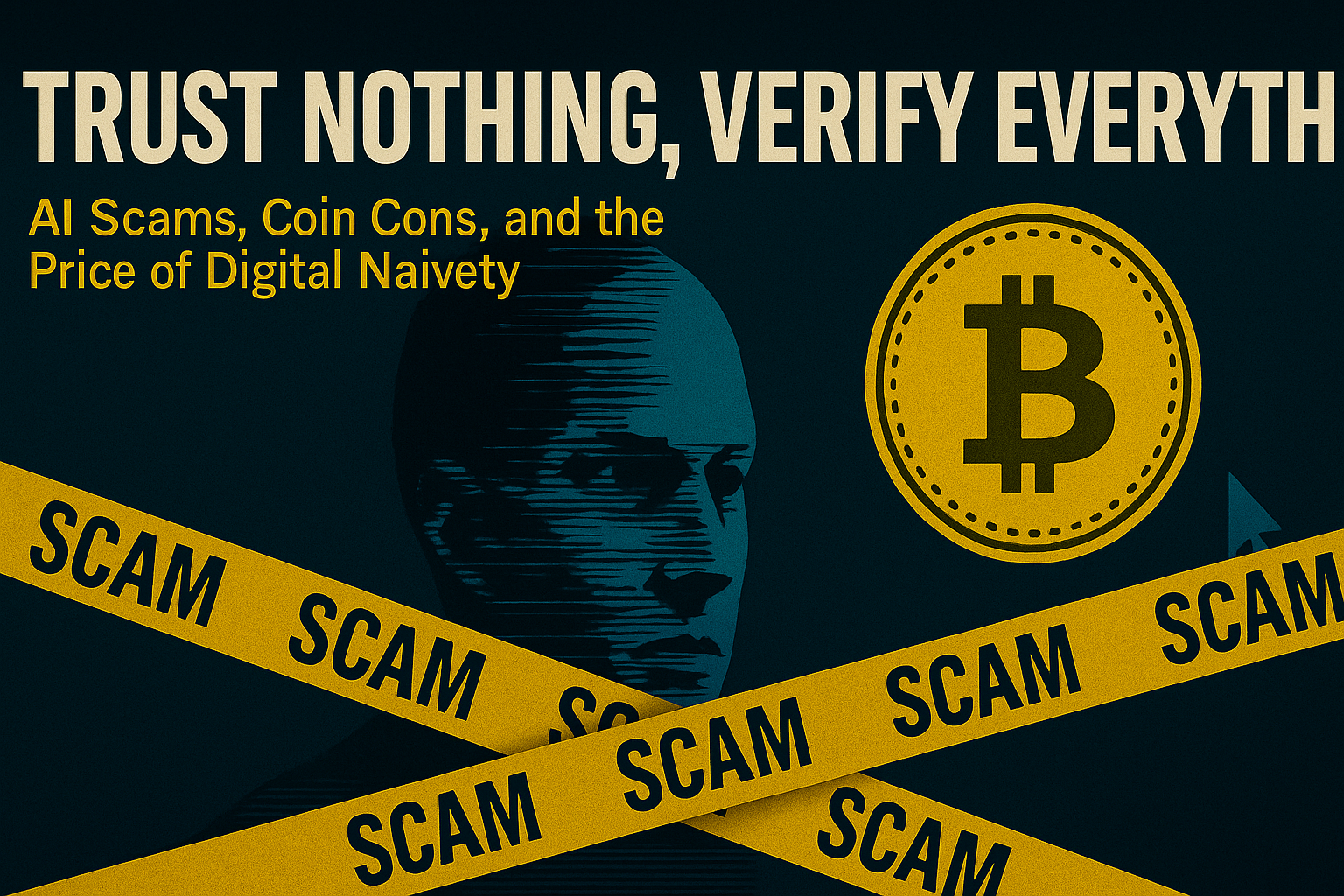A few years ago, my phone would buzz with calls from friends and family about pop-ups, viruses, malware, or someone accidentally deleting their desktop icons. “Is my computer hacked?” they’d ask, often while trying to download a pirated movie (or worse) or clicking on a free coupon for a free McDonalds cone. Harmless enough, relatively speaking.
But now?
My calls are darker. More desperate. “I just sent $5,000 worth of Bitcoin to an investor I met on WhatsApp.” Or, “This woman on Instagram promised to double my money or even marry me” Or the particularly painful, “I wired money to a real estate agent in Florida, and now no one is answering the phone.”
We are not in Kansas anymore, folks. And even in Kansas I would not send anyone any money that I did not know.
The digital frontier is no longer just a Wild West—it’s a full-blown sci-fi dystopia. And the con artists? They’ve upgraded from horse-and-buggy email spam to sleek, AI-powered scams that look, sound, and feel real. As someone who has worked on cybersecurity issues across government and Fortune 500 companies for over two decades, I can tell you: this is the worst I’ve ever seen it. Or the best if you are running a cyber scam.
So here’s the deal. If you’re reading this, consider it your friendly—but firm—reality check.
- Don’t Trust Anyone. Period.
That video of Elon Musk telling you to invest in his secret crypto scheme? Deepfake.
That “official” DocuSign email from your bank? Spoofed.
That “cousin” who needs bail money and sounds just like him on the phone? AI voice clone.
Technology can now mimic voices, faces, and even mannerisms. It’s terrifyingly impressive—and it’s being used to separate you from your money. If you didn’t initiate the conversation, you probably shouldn’t be in it. Even if you did – do you really know the person on the other side of the conversation – I mean really know them?
- There Are No Secret Shortcuts to Wealth
Let’s be honest: if someone truly had the “secret” to 10X your money in 3 days, they wouldn’t be in your DMs asking for a $300 investment. They’d be on a beach, sipping a drink with a tiny umbrella, funded by their own gains.
Scammers prey on our desire for shortcuts. But true investors don’t recruit via Facebook Messenger, TikTok, or WhatsApp. They don’t cold call you with offers that sound too good to be true—because they are.
- Once You Hit ‘Send,’ It’s Gone
Crypto wallets are like black holes for money—once something goes in, it rarely comes back out. Wire fraud is no better. By the time the bank realizes something is wrong, the scammer has vanished, the account is closed, and your money has moved through five countries with zero chance of return.
That’s why banks ask again and again if you’ve verified the wire recipient. Because once you click “send,” it’s not just money at risk—it’s your peace of mind. They are also no longer responsible – you are.
A Personal Note: Even Smart People Fall for It
At one of my own companies, a very sharp, well-trained employee almost sent out thousands of dollars in gift cards because of a single email—one that looked like it came from me. They were explicitly told: “If Waylon doesn’t tell you in person, don’t send money.” They heard me—but they didn’t listen.
And that’s the point: Scammers know how to bypass logic. They trigger urgency, excitement, or fear. One click, one call, one emotional moment—and you’re a victim.
The New Golden Rules:
- Never trust a message from social media or WhatsApp—even if it looks real. Accounts can be faked, stolen, or deepfaked. Endorsements can be fabricated.
- If you don’t recognize the number or sender, delete and report it. That random “Hi” text from an unknown number? It’s bait.
- Never open unexpected attachments, even from “trusted” sources. That DocuSign could be malware in disguise. Always verify out of band—call the sender directly using a number you know.
The Hard Truth
AI has changed the game. It can convincingly impersonate people, build fake websites, replicate software, and make scams look more real than reality itself. That means we need a new baseline:
Start with Zero Trust.
That’s not just cybersecurity jargon—it’s survival strategy. Assume every message, link, call, or investment opportunity is a scam until you can physically verify the source.
This might sound like a downer, but here’s the upside: it may force us to do something we haven’t done in a while—build real relationships. Shake hands. Meet face-to-face. Trust people who’ve earned it the old-fashioned way, not just through a profile picture and a few chat messages.
Because in a world where even reality can be faked, trust must be earned—not downloaded.






Comments